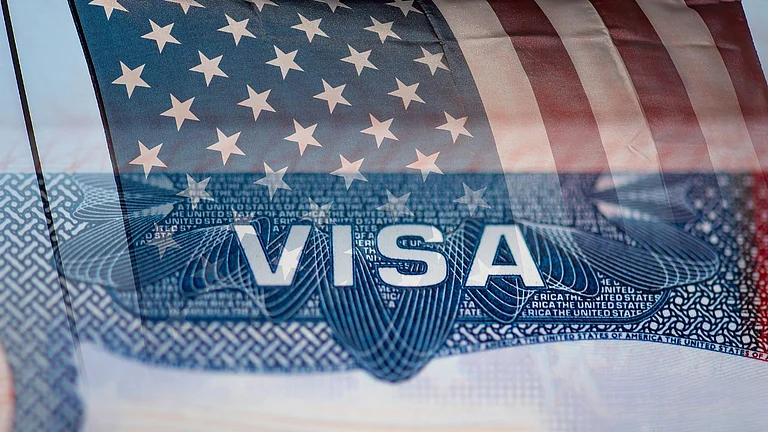Trump’s H-1B visa fee hike is expected to impact India’s IT sector negatively.
On NYSE, Infosys ADRs fell 3.41 per cent to $16.97, Wipro ADRs down 2.10 per cent to $2.80
Experts say the fee hike will increase the costs for Indian IT firms deploying talents to US projects
H-1B Visa Fee Hike: How Trump’s New Executive Order Will Impact Indian IT Stocks?
India’s IT sector, which heavy depends on the US for its business, was rattled after US President Donald Trump signed an executive order to raise the fee for H-1B visas to $100,000
Indian IT stocks are expected to open under pressure on Monday, September 22, following the US administration’s H-1B visa fee announcement that rattled investors last week. On September 19, 2025, US President Donald Trump signed an executive order to raise the fee for H-1B to $100,000 annually. The White House Press Secretary Karoline Claire Leavitt later clarified that the fee is a one-time charge, not annual, and will only apply to new applicants, but the initial announcement has already triggered sell-offs in Indian IT stocks listed on the Wall Street.
On New York Stock Exchange (NYSE), Infosys’ American Depository Receipts (ADRs) fell 3.41 per cent to $16.97 apiece, and Wipro’s ADRs lost 2.10 per cent to $2.80 apiece. Cognizant, whose operations depend heavily on Indian IT employees, tumbled 4.73 per cent to $66.94 apiece on Nasdaq Composite.
The executive order came into effect on Sunday at 12:01 Eastern Time, or 9:31 AM, according to Indian Standard Time.
H-1B Visa Fee Hike Impact On Indian IT Companies
Indians account for over 70 per cent of H-1B visa holders, and the new visa fee has raised serious concerns for the Indian IT sector, which depends heavily on business from the US.
According to Bhavik Joshi, Business Head at INVasset PMS, the fee increase is a short-term operational consideration rather than a fundamental disruption to earnings potential or strategic positioning in the global IT sector.
Joshi said the fee hike will increase the cost for Indian IT firms deploying talents to US projects, especially for smaller companies heavily dependent on US revenues.
“For companies that send large numbers of consultants on short-term US projects, this will increase costs and could squeeze near-term profits. Smaller firms or those that rely heavily on US business may experience more acute impact, while bigger IT companies with diversified operations and strong offshore delivery models can absorb the cost more efficiently,” he said.
He added: “Firms with strong service portfolios, diversified client bases, and automation-led efficiency are likely to maintain growth trajectories.”
IT Stocks Outlook
When India’s stock market will open on September 21, investors are likely to factor in this development immediately. Market experts say IT stocks likely to come under pressure.
Ajit Mishra, senior vice president, research, Religare Broking, said “While export-driven sectors are already grappling with tariff-related pressures, this move could further weigh on IT services exporters at a sensitive time when trade negotiations remain underway.”
Notably, the US has imposed a 50 per cent tariff on a wide range of Indian goods. This includes a 25 per cent reciprocal tariff and an additional 25 per cent penalty tariff, which the US imposed due to India’s continued import of discounted Russian oil. The tariffs though are not applied on the services sector.
According to Joshi, investor reaction to this development should be measured, adding that the policy constitutes a “tactical headwind rather than a structural threat.”
